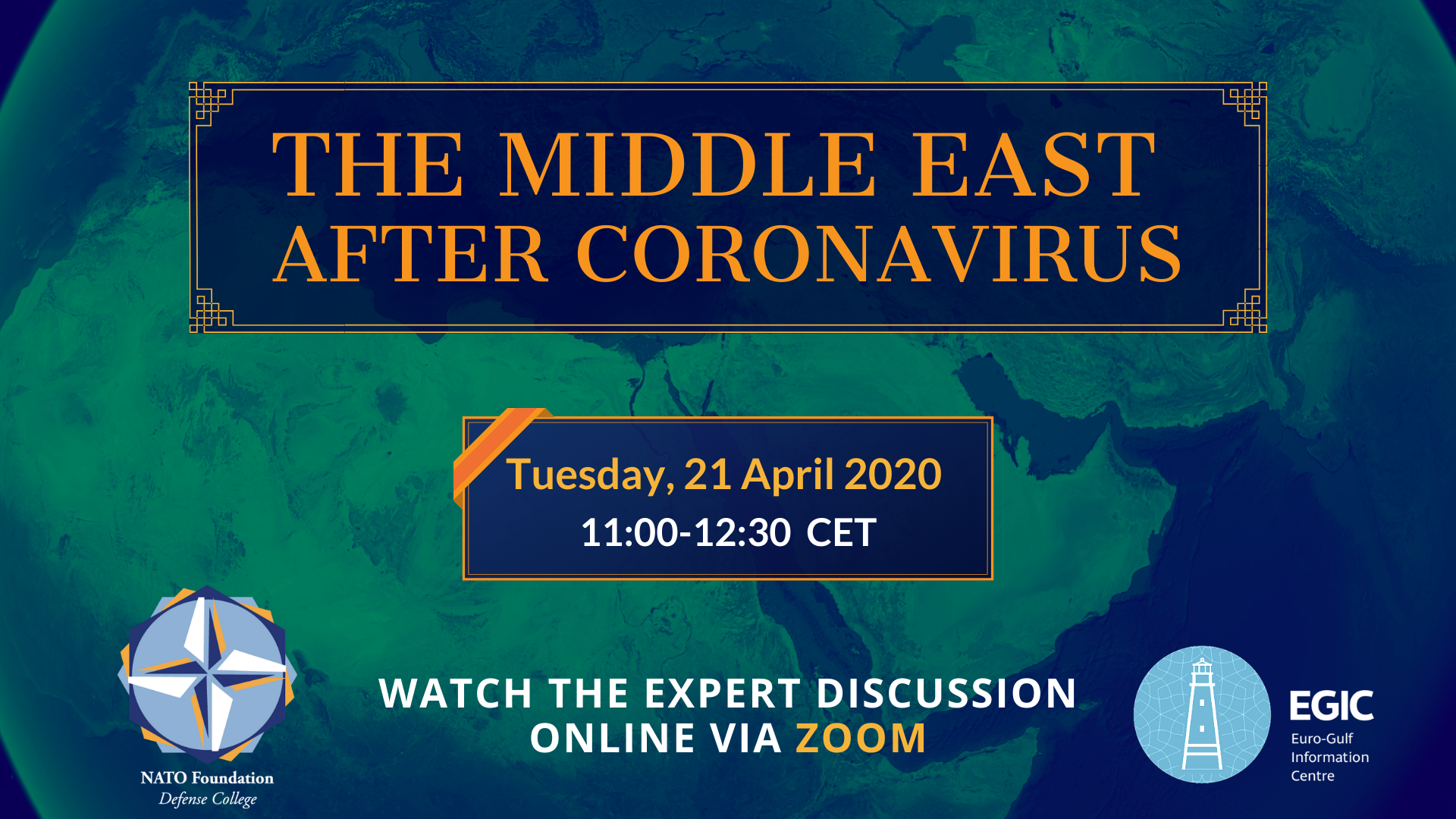
The Middle East after Coronavirus
NDCF-EGIC Joint Webinar
April 21, 2020, Zoom Platform
Speakers:
Lina Aburous, Managing Director, Strategy, Euraffex
Ahmed Elbaz, Director, Early Warning Centre, UAE
Oded Eran, Senior Research Fellow, Institute for National Security Studies
Umberto Profazio, Maghreb Analyst, NATO Defense College Foundation
Moderator: Mitchell Belfer, President, Euro-Gulf Information Centre (EGIC)
Summary
Main points
The pandemic could lead to a de-globalised world. This was a debated issue because tendencies to have national solutions are evident, but links between supply chains are very strong. In the end it appears that globalisation in commerce and economy will continue, but the imposition of the Washington consensus will be increasingly challenged in the region. It could be watershed for global North and South in uniting against virus and neoliberalism.
EU has been weakened in its role by two problems: 1) the absence of political leadership; 2) the lack of consistency between values declared in the conditionalities attached to regional assistance and the values applied in the migrant issue (e.g. Libyan detention centres) and among EU Member States during the sanitary pandemic emergency.
The crisis could be a springboard for more collaboration among different sub-regions of the ME, but only under strong political impulsion. It will also favour violent non-state actors and militias, weakening states.
The crisis will have serious economic consequences: I) revenues drop in energy, tourism, migrants’ remittances, etc.; II) less FDI; III) improbable foreign acquisitions of local assets; IV) lower support from Gulf countries to Lebanon and Jordan; V) additional negative effects on Iran’s economy (reason why borders are open between South Lebanon, Syria, Iraq and Iran, despite virus containment measures).
Concerning internal stability the evaluations were divided. In the Gulf area and Egypt it seems that there will be no further mass protests, not so in North Africa, especially regarding Algeria. All countries blocked public religious functions and this in time could cause unrest, if a normalisation comes too late. Despite the crisis being relatively easy (all essential infrastructures and food supply chains function), the consequences of it, in conjunction with the Arab Revolutions’ effects, will linger on the region.
The Libyan conflict continues unabated while China, Turkey and Russia are continuing to make inroads due to the US retreat and the EU paralysis.
The military experience and cooperation between Egypt, Jordan and Israel has been positive and could be a model to extend to other sectors.

